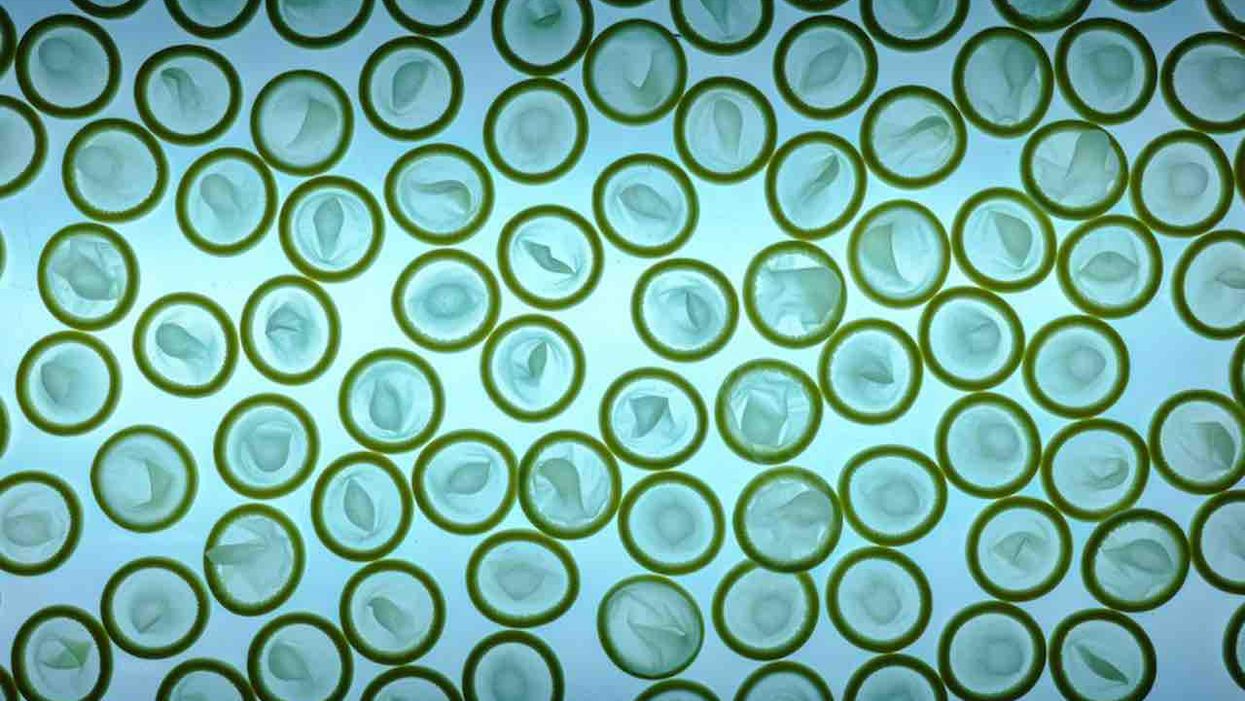
Photographer: Samsul Said/Bloomberg via Getty Images

Students as young as the fifth grade will have access to condoms in Chicago elementary schools when they reopen in late August, the Chicago Sun-Times reported.
The Chicago Public Schools policy states that schools teaching fifth grade and up must maintain a condom availability program as part of an expanded vision of sexual health education, the Sun-Times said, adding that more than 600 CPS schools will end up having them, save for a dozen that enroll only younger grades.
"Young people have the right to accurate and clear information to make healthy decisions," Kenneth Fox — CPS' chief health officer and a pediatrician of 30 years — told the paper. "And they need access to resources to protect their health and the health of others as they act on those decisions."
Fox added to the Sun-Times that school officials want to "make condoms available to students for if and when they think they need them … When you don't have those protections and don't make those resources available then bad stuff happens to young people. You have elevated risks of sexually transmitted infections, of unintended pregnancies, and that's very preventable stuff."
More from the paper:
To start, elementary schools will get 250 condoms and high schools — many of which already make them available — will get 1,000. The Chicago Department of Public Health will provide the condoms at no cost to the district as part of the city's effort to prevent teen pregnancies, HIV and other sexually transmitted diseases. When a school runs out, principals will be told to request more from CPS and CDPH.
Schools will get a letter from Fox explaining the policy to parents, and principals will receive guidance for where to store the condoms and how to operate the program. The condoms should be in easily accessible locations in the school while also not too out in the open so there's still privacy for students, Fox said.
"I would expect that not everybody is going to be completely on board right from the start, but I do think society has changed," Fox added to the Sun-Times.
The paper said it asked Fox why fifth grade is a threshold, and he replied that it's "informed by a developmental understanding of children."
CPS' sex-ed curriculum says the district "stresses that choosing to not have sex is the norm for 5th graders. Parents/guardians should be notified by their school if a condom demonstration will be provided," the Sun-Times said.
Scout Bratt, an outreach and education director at the Chicago Women's Health Center, added to the paper that many parents won't agree with the program, and that CPS will be responsible for listening to their concerns.
"I want to be really clear that the existence of condoms does not mean that all students are going to be using those condoms or encouraged to use them," Bratt told the Sun-Times. "The idea is to say we are educational centers, we are community health centers essentially, and we know to invest in young folks' health and well-being by providing comprehensive sex ed, it means we also need to provide the resources. We want students to come to us and to have access to those condoms for free as opposed to potentially having to find them elsewhere or choose not to use condoms. ... It is about recognizing that school is investing in young people's health."
Bratt also told the paper there's no proof that access to condoms will lead to more kids having sex — and that those already doing so will have an easier way to protect themselves through the program.
"It's a harm reduction approach," Bratt told the Sun-Times.
Maria Serrano — a parent working with Healing to Action, which advocates for improved sex ed — told the paper said education and communication must come before condom availability.
"My question is, 'Oh my God, how is it that CPS wants to give condoms to kids?'" she asked the Sun-Times in Spanish. "They are 10 years old, 11, 12. They are kids. So why is CPS thinking about providing condoms? Why not provide them information, and at the end give them the resource of a condom when they are prepared to use those resources they want to provide. For me, this isn't the best option. They are doing things backwards."
Serrano added to the paper the she only knew about the new program because of her advocacy work and has heard nothing as a parent from CPS.